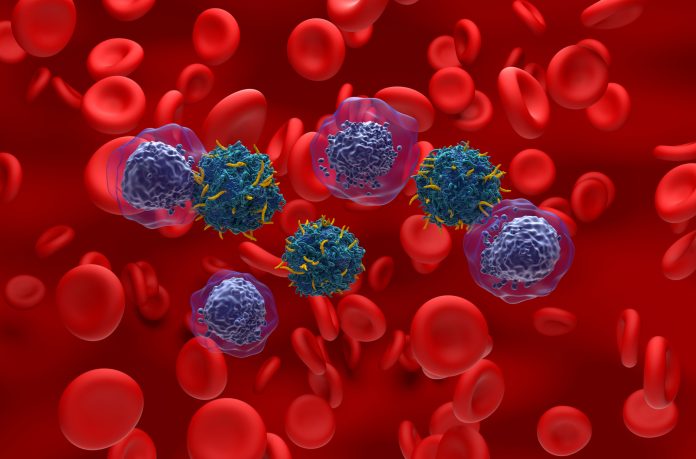A UK patient has become the first with multiple sclerosis (MS) to receive cutting-edge CAR T-cell therapy, as scientists test whether the one-time treatment can halt disease progression
In a significant medical milestone, a UK woman with Multiple Sclerosis (MS) has become the first in the country to receive CAR T-cell therapy as part of a pioneering trial at University College London Hospitals NHS Foundation Trust (UCLH). The innovative treatment, initially developed for cancer, reprograms a patient’s own immune cells to target the B-cells driving MS. While still experimental, it offers hope that a single infusion may one day stop relapses and irreversible nerve damage, a possibility that current treatments cannot yet achieve.
Could CAR T cell therapy revolutionise MS?
Multiple sclerosis (MS) affects the central nervous system, including the brain and spinal cord. When a person has MS, the myelin that protects nerves is damaged, causing symptoms such as blurred vision and problems with movement, memory, and thinking. Whilst there is no cure for MS, there are several treatments available to manage symptoms and slow progression.
There are currently over 150,000 people with MS in the UK, and this figure continues to grow.
CAR T-cell therapy has proven to be effective in treating blood cancer, leading researchers to test the treatment for autoimmune conditions such as lupus and MS. CAR T-cell therapy works by resetting the immune system by depleting B cells, which are thought to drive the autoimmune attack in MS. The treatment modifies the patient’s own T cells to target and eliminate the B cells, potentially leading to long-term remission and halting disease progression.
Principal investigator Dr Wallace Brownlee, consultant neurologist at UCLH, said: “Although treatments for MS have dramatically improved in recent years, none of the available medications fully stop relapses or progression of the illness. CAR T cell therapy is an exciting new frontier in the treatment of autoimmune conditions, and this trial will be essential to understanding the feasibility and safety of CAR T in people with MS.”
An experimental treatment that could change MS treatment forever
Emily Henders, 37, from Bushey, has MS and has become the first person in the UK to receive CAR T cell therapy to treat her condition at University College London Hospitals NHS Foundation Trust (UCLH) as part of a global trial.
The AUTO1-MS1 trial was supported by the NIHR UCLH Biomedical Research Centre (BRC), which has been supporting the CAR-T cell programme at UCLH/UCL for more than 10 years.
Scientists from the UCL Cancer Institute, led by Dr Martin Pule, created the second-generation CAR T-cell therapy, known as obecabtagene autoleucel (obe-cel). It has immune toxicity and persists for longer in blood cancer patients, overcoming two common limitations of earlier CAR T cell therapies.
UCLH consultant haematologist Dr Claire Roddie said: “It is fantastic to be involved in the development of obe-cel for patients with MS, and this Phase I clinical study will help us understand how safe and effective obe-cel is for MS. Our ultimate goal is to achieve long periods of disease remission with a single, one-time CAR T treatment.”
UCLH consultant haematologist Dr Claire Roddie said: “It is fantastic to be involved in the development of obe-cel for patients with MS, and this Phase I clinical study will help us understand how safe and effective obe-cel is for MS. Our ultimate goal is to achieve long periods of disease remission with a single, one-time CAR T treatment.”
The first UK participant in the trial, Ms Henders, said: “I hope taking part in the trial means I will never have to experience another relapse and that my MS symptoms will not progress. I know it is still experimental, but it offers a scientific rationale which, as a biology teacher, makes sense to me.
“Ultimately, I am doing my best to preserve my ability to live life fully, and to enjoy it with my family for many years to come, without the limitations that this disease can bring. My focus is on living fully despite MS – being a wife, a mother, a teacher, and someone who refuses to be defined by illness.
“My journey with MS is about choice and action. I choose to be proactive, to educate myself, and to confront uncertainty head-on. While the path is often unpredictable and daunting, I refuse to let MS dictate my life and I remain hopeful, not only for myself but for others who may one day benefit from advances in treatment.”








